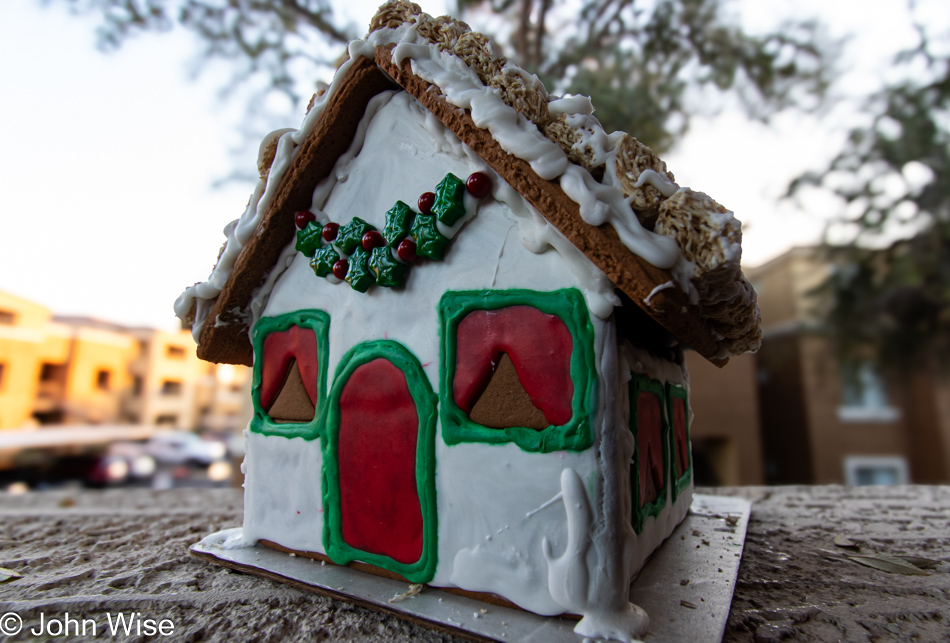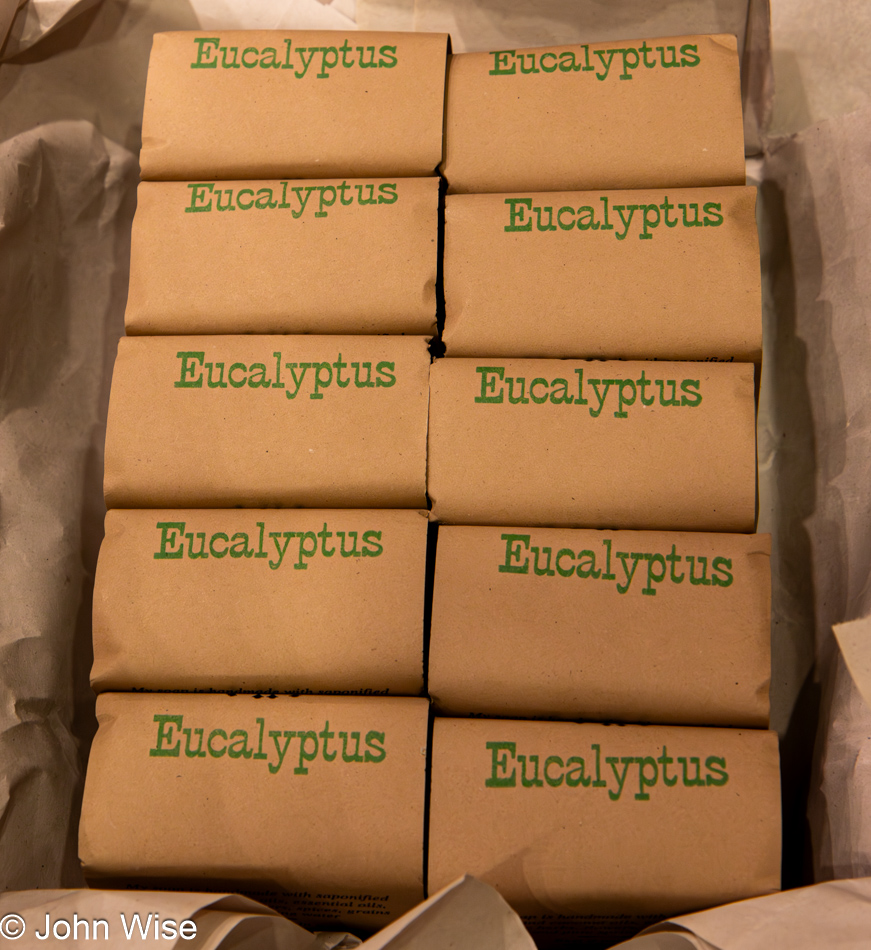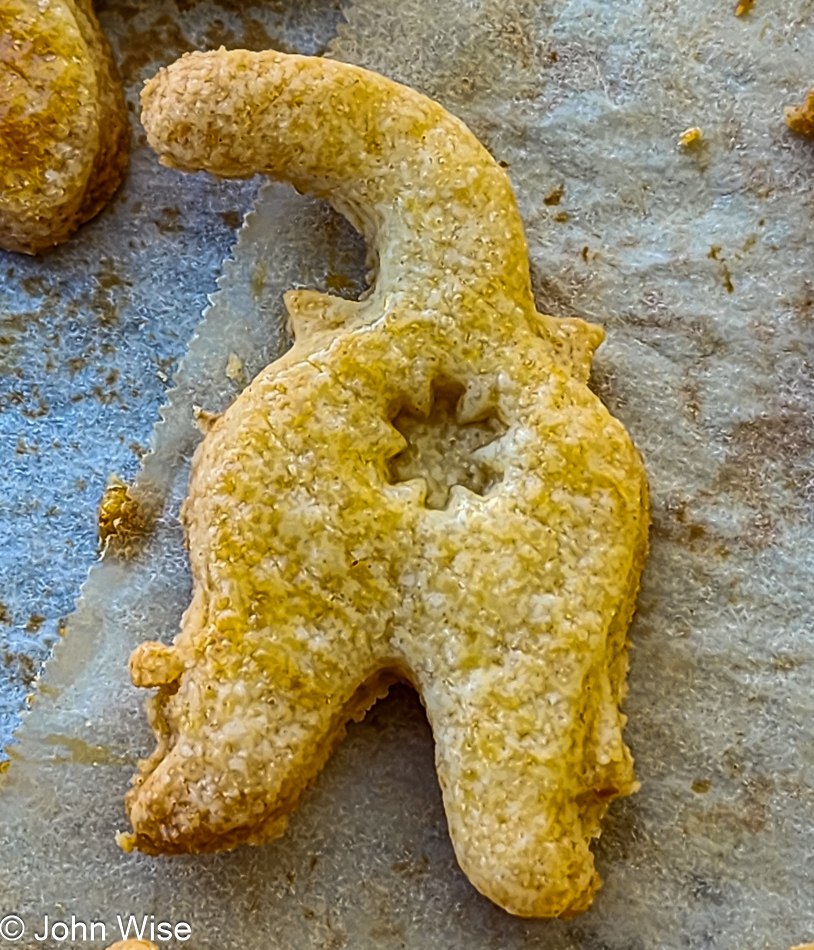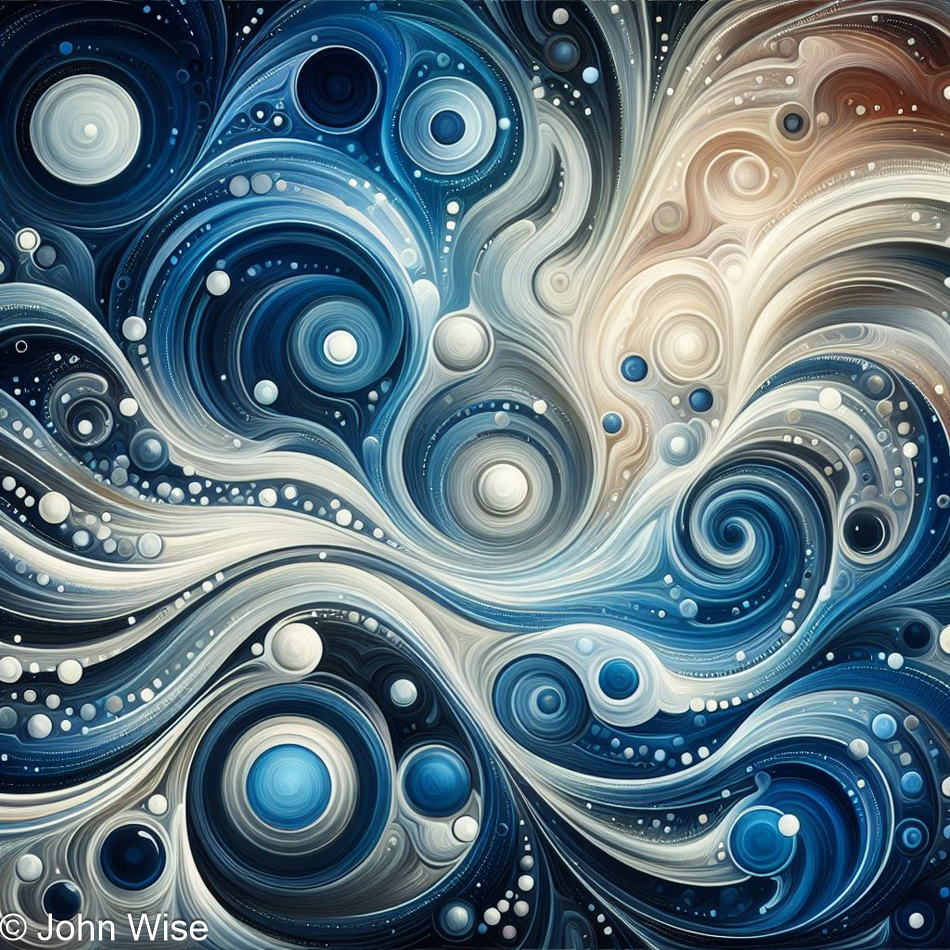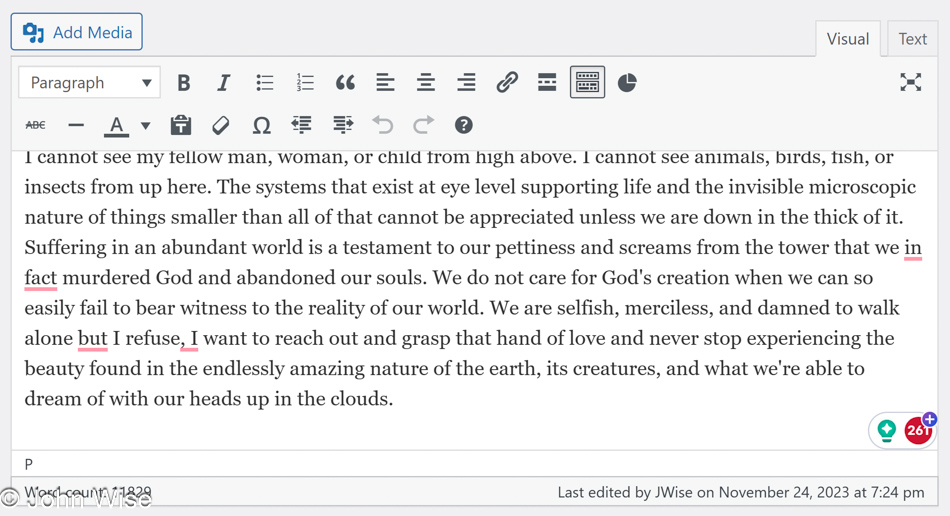
Oh my. Over the past weeks, I’ve run well over a thousand blog posts through Grammarly and discovered literally thousands of blunders, omissions, and written faux pas. I want to be embarrassed by these mistakes, but it’s no easy feat ensuring that millions of words have the proper punctuation, that sentences don’t take turns that make no sense, or that the context of what was shared is not lost to the passage of time.
There are so many things I could blame, such as my editor, who also happens to be my wife [-_- Caroline], but I could also offer up my lack of formal education and having dropped out of high school. I could blame the drugs consumed long ago, but those are the least likely contributors. Expediency to get posts done or inexperience in writing when I started this blog might find an attribution of cause. Maybe I should blame artificial intelligence bots that have hacked my site in an effort to gaslight me and demonstrate to the wider world my stupidity, but that likelihood is absurd.
Something I’ve gained from reviewing so many posts, and I’m not done yet, is that I’ve stored an incredible wealth of memories on the internet that Caroline and I have ready access to that take us into the nooks and crannies of our minds that would otherwise be inaccessible, so in this circumstance, these thousands of posts have taken on treasure trove status…
…except when they are not. Going over so many posts, I also encounter my oldest missives, which hardly register as anything more than guttural utterances. In 2005, when I embarked on this blogging adventure, not only was my grammar atrocious, but so was the near-total lack of meaningful content as I forced myself to grow accustomed to sharing my thoughts on a page but could only manage brevity that verged on nothingness. So, had I named this post appropriately, the title would have been too long with The Importance of Grammar and Meaningful Musings.
On the other hand, posts that are between 3,000 and 11,829 words are a bit of an ordeal to correct as they require a good amount of time. It’s inevitable that by the time I get to the end of the document, one to three errors remain, but my eyes struggle to detect the tiny red underline highlighting a misplaced comma near the margin, thus forcing me to scrub through the 127 paragraphs trying to find the proverbial needle in a haystack.
